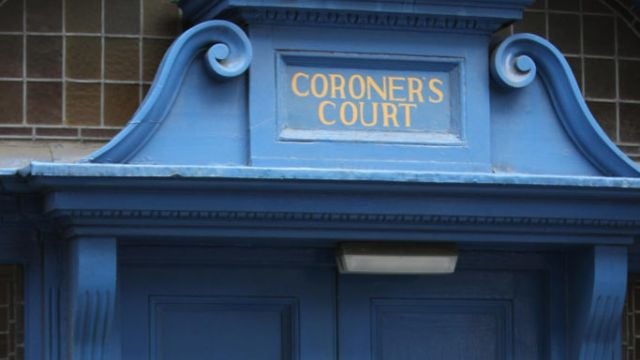A narrative verdict has been returned into the death of a Dublin woman who was discharged from hospital by her family against medical advice over concern about her treatment by healthcare staff.
Monica Renwick (79), a mother of three and grandmother, died in her home at Grange Park Avenue, Raheny on October 23rd, 2020 a week after she was discharged from Beaumont Hospital amid concern at her deteriorating condition while under the care of medical staff during a two-month stay.
The legal representative of her family had urged coroner, Aisling Gannon, to return a verdict of medical misadventure.
A sitting of Dublin District Coroner’s Court last week heard complaints by the deceased’s husband and her two daughters that Beaumont Hospital had failed to provide the appropriate standard of care to her across a range of issues including hygiene, nutrition and pain management.
They also criticised poor communications from staff at Beaumont about getting news of her condition at a time when restrictions on visitors were in place due to the Covid-19 pandemic.
Ms Renwick’s family also took issue with the fact that she had been placed in a ward with some male patients, while also voicing concern that some staff member at Beaumont had turned her phone off.
At one stage, the patient’s eldest daughter, Geraldine Kenny tearfully remarked: “I will never forgive myself for not insisting she was moved out of Beaumont a lot earlier.”
However, medical staff at Beaumont gave evidence that she had received “extensive and involved” care from a multi-disciplinary team, although her recovery from surgery was slower than expected.
The inquest heard Ms Renwick had to be admitted to Beaumont after she became ill shortly after undergoing a procedure in August 2020 to remove a stoma (an opening in the body to facilitate the fitting of a colostomy bag) that had been inserted after she had been diagnosed with rectal cancer the previous year.
At a resumed hearing on Monday, which coincided with the third anniversary of Ms Renwick’s death, counsel for her family, Robert O’Reilly, said her family believed she left hospital with an infection that had led to her contracting pneumonia which was the ultimate cause of her death.
He claimed the results of blood tests on the patient indicated she should have been tested further because of the risk that she might have an infection.
A solicitor representing Beaumont Hospital, Kevin Power, reminded the coroner that the consultant responsible for Ms Renwick’s care, John Burke, had told the inquest that there was no evidence that she had an infection at the time of her discharge.
Mr Power claimed the results of blood tests and chest X-rays at the time were normal, while Ms Renwick had displayed no symptoms of an infection before leaving the hospital.
He said the only conclusion that could be drawn was that Ms Renwick developed pneumonia at home.
Mr Power urged the coroner to return either a narrative verdict or to conclude that she had died of natural causes.
The solicitor acknowledged that Professor Burke had accepted that Ms Renwick’s surgery was a contributory factor in her death but underlined that it had not caused her death.
He said there were a lot of factors in a complex case which had resulted in Ms Renwick having a slow recovery from her surgery.
However, Mr Power said a finding of medical misadventure would not be reasonable as there was no evidence of hospital staff having carried out an intentional act with unintended consequences.
Ms Gannon said the most appropriate finding to reflect Ms Renwick’s “complex clinical history and clinical pathway” was a narrative verdict, which also recorded her relatives’ concerns about the care received in hospital.
The coroner recorded the cause of death as pneumonia, myocardial fibrosis and recent abdominal surgery.
She said contributory factors included Ms Renwick’s rectal cancer and previous breast cancer as well as osteoporosis and hemochromatosis.
Ms Gannon also observed that the deceased had been in good health prior to undergoing the operation to remove the stoma but that her subsequent recovery had not progressed as expected due to “unforeseen difficulties.”







